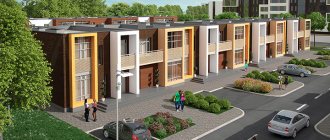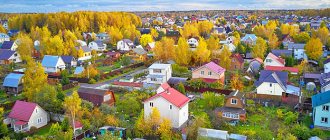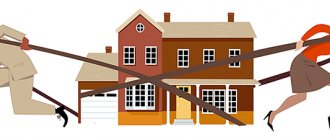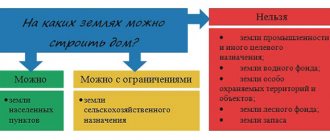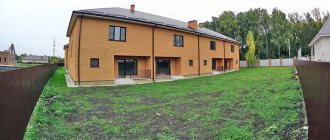Many Russians dream of owning their own home, but this dream is very difficult to achieve. The protracted multi-year economic crisis, the fall of the ruble, and the associated reduction in business activity and wages, force us to postpone the purchase “until better times.”
High housing prices, rising prices for gasoline, utilities, and the deteriorating transport situation do not contribute to the realization of dreams. Housing developers, who have almost stopped building new cottages near cities and have “switched” to apartments everywhere, are also not contributing to the demand for houses.
Does all this mean that now is not the best time to buy your home? Not at all. Quite the contrary, due to strong competition and imbalances in supply and demand, today you will get the best prices for buying a ready-made home. But where to get the money? Or how to accumulate them if there are not enough of them? We will tell you about this in this article.
How to save money for your own home?
To begin with, this is a fairly general question, since everyone's situation is different:
- Someone has already acquired their main home (apartment), and is currently thinking about buying a summer house or a country house, for which there is not enough money yet;
- Other people are planning to exchange their apartment for a country cottage or a house by the sea;
- The third category of people does not have their own home and lives in rented accommodation, planning to buy an apartment or house in the future.
Of course, the first two categories find it easiest to resolve the issue of buying a house (you can sell or mortgage your property). But what to do if you don’t own real estate yet and don’t want to buy an apartment instead of a house?
There are two solutions to this situation:
- take out a mortgage loan;
- open a bank deposit and put money aside every month.
Of course, if you already have savings (say, several million rubles), this money can still be invested. For example, buying an apartment in a new building for the purpose of resale or investing in a business, etc. But let’s say right away that this is all quite risky. New buildings are now not as profitable as 5-10 years ago, plus the investment procedure has changed since 2019 (from DDU to escrow accounts), which means they may not even outperform inflation in terms of profitability. And investments in business now (during a crisis) bring more disappointments than profits. It is much wiser to put this money on a deposit in a bank and regularly replenish it with income, gradually moving closer to your dream. This money is yours, and you can always withdraw it when needed (unlike investments).
Let's take a closer look at these two strategies.
List of papers
Those wishing to become owners of an empty house in the countryside are encouraged by the relatively small list of documents. List of papers:
- Application for participation in the state program.
- Document identifying the applicant - a photocopy and original.
- Documents proving education and specialization.
- Papers indicating marital status.
- For persons under fourteen years of age - a birth certificate.
- Documentary evidence of employment within rural areas.
- Conclusion of the expert commission on the need to improve living conditions and expand living space.
- Documentary evidence of the availability of the required amount to participate in the program. As evidence, you can use a bank account statement, a copy and original certificate of receipt of maternity capital, etc.
The above list consists of papers that everyone has on hand.
How to get a loan to buy a house? And what is important to consider?
Most banks are willing to lend for the purchase of real estate. This is understandable - they risk almost nothing; if the borrower stops paying, the bank will get the property back, sell it and get their money back. All this is true, but with one “but” - we are talking about urban or commercial real estate. As for a country or resort property, it is much more difficult to get a mortgage here.
Why is it more difficult to get a mortgage for a country house than for an apartment? There are several opinions here:
- Firstly, houses are always sold with plots, and as a rule, investors have the most legal problems with plots. These are unformed borders, communications, roads, easements, privatization, inheritance, land disputes, violations of laws regarding the proximity of forests, water, roads and much, much more;
- Secondly, the houses are located outside the city limits, where 100% of liquid real estate is no longer available. Some cottages are built so far from civilization that banks simply do not want to take risks;
- Thirdly, houses are more difficult to sell than apartments. The thing is that each cottage is individual; there are almost no standard layouts, “vests”, series and other things. Obviously, the period of exposure of non-standard real estate is always longer than, for example, “P-44T 2-room 40 sq. m."
Of course, these are not all the reasons. Some banks simply refuse to lend to a “fence” simply following their own rules, without explaining the reasons. Fortunately, these are usually small banks; all top lending institutions will be willing to give you a loan to buy your dream home.
Inexpensive lots attract migrants
People rent out country real estate for free for various reasons.
“Some owners may simply not need dachas, and, wanting to get at least some benefit from them, they are ready to rent them out for a nominal fee. Others need money urgently. Someone wants their house to be looked after, so they are ready to place people there as guards,” Popov said.
Often cheap housing is rented to a certain number of residents.
— Usually it’s 1-2 people or a family. Inexpensive country lots in 90% of cases attract migrants who try to negotiate accommodation for 5-6 people. In fact, there may be a dozen people at the dacha. Naturally, the owners do not want to see such tenants. In rare cases, the owner is willing to rent out housing for free in exchange for help in caring for the house or property, says Yakovleva.
Question answer
How to rent a plot of land with the right to buy?
How to get a loan to build a house? And what is important to consider?
Some banks are ready to help not only with the purchase of a finished house, but also to finance its construction. This is a more complicated procedure, but if desired, it is quite feasible (though at higher interest rates).
However, keep in mind that a home construction loan is different from a traditional mortgage. In this case, the bank does not repay the borrowed amount in full, but in parts (tranches). And you are required to account for each tranche. This means that for the entire period of building a house, you need to save all documentation, estimates, payments for materials and provide these documents to the bank. In addition, you cannot use this borrowed money for purposes other than construction (for example, notary fees).
The scheme for building a house on credit is also complicated in that you must make any payments only by bank transfer. Please note: any purchases of building materials and services in cash will not be reimbursed by the bank.
Another cost is home insurance. Many borrowers do not like insurance policies, as they consider it another way for banks to “pump” money. In fact, you have a choice - if you don't like the bank's offer, you can insure your home with any other insurance company. But you need to insure it in any case (it’s better to spend a little more money than to be left without a home at all, if there is a flood, fire or hurricane, but with a full bank debt).
Keep in mind that taking out a loan to build a house is not the same as buying a car or a vacation on credit. This is a long-term partnership with the bank. Therefore, it is important to understand for yourself how confident you are in the decision to build your own house and see it through to completion. Sometimes even sacrificing something else.
You must answer several questions:
- How much money will it cost to build in the best and worst case scenario?
- How much money will be “yours” and how much will you borrow?
- What happens in the “worst case scenario”? Will you be able to complete your house without taking out a new loan?
- From a financial point of view, will you be able to simultaneously “pull” the construction of a house and repay the bank debt?
- Where do you plan to live during this time while the house is being built? Do you take into account rental and utility costs?
Try to answer these questions honestly. Remember that not a single construction project in Russia has yet met 100% of the set budget. It is naive to think that things will be different for you. Therefore, always allow for a small overrun (10-20%). If you are having trouble with the calculations, seek help from a financial advisor.
Professional developers will also help you with cost calculations and estimates for building a house. If you are planning to order the construction of a turnkey house, then they will give you the most detailed calculation and take on some of the tasks themselves.
When calculating expenses, keep in mind that in addition to the building itself and laying all the necessary communications (heating, ventilation, sewerage), you will also need to have a reserve of money for equipment and furnishings of the rooms. In addition, additional costs will inevitably arise that cannot be covered by a loan. These include notary, legal or insurance costs.
Dig up the garden
Having delved into the Internet, I found plenty of offers of free or extremely cheap housing. Often men who are older or not the most beautiful in appearance offer to hook up with a girl or woman. Some even agree with children. In more rare cases, people are willing to rent out a house for caring for it and helping with housework. I called based on one ad.
“I need a pair of gentle female hands without children to support life in a small two-story house with amenities and comprehensive assistance in running a joint household without restrictions on citizenship or other discrimination. It takes half an hour by train to Kursky Station. “You will live for free in the Saltykovka microdistrict in Balashikha in the same room with me,” the 49-year-old man sang in a sweet voice.
In another option, they offered a dacha for 0 rubles in the village of Volynshchino in the Ruza region. The man picked up the phone again.
— The house is wooden. Area 12 sq. m. Shower and toilet outside. There is old furniture, a gas stove, a refrigerator and an electric radiator. Looking for a boyfriend. I can accommodate three people. I will live in the next house. In exchange for accommodation, I ask for small services - help with housework, for example, digging up the ground or straightening a rickety fence,” says Prishchepov.
A piece of countryside. The main disadvantages of townhouses and are they so terrible? Read more
Buying or building a house on credit. How much money should you have?
The bigger, the better. Although, of course, all people have different incomes and different amounts of savings. In this regard, there is always a great temptation to believe the advertising and become the owner of a house in installments and without money. Alas, this does not happen. More precisely, there are installment plans, but they must be made with a down payment.
What should the down payment be? Financiers have long calculated all amounts that are not critical for the family budget, and psychologists have derived a number that is comfortable for life. A simple rule is this: it is better to invest 30% in a house immediately, and 30% of income every month. For example, in the Moscow region, houses with plots today cost, on average, 10 million rubles. This means that you should already have savings of 3 million rubles, and arrange a loan in such a way that it does not exceed 30% of your monthly income.
Where can I get these 3 million rubles? If you don't have rich relatives or friends, just work and save. And it is advisable to start as early as possible, say from 25 years old. And if you regularly (monthly) deposit 28,000 rubles into the bank, then in 7 years, by the age of 32, you will already have the treasured 3 million in your account.
Many will ask, but how can this be? After all, 28 thousand * 7 years = only 2,352,000 rubles?
It's really all about compound interest. We took an annual rate of 8% per annum. And the first payment is equal to 28 thousand, a month later again 28 thousand, and then again and again. The deposit amount is growing, and so is the interest from the bank. And it turns out that having nothing but 28 thousand at the very beginning, after 7 years you receive 3,018,290 rubles, of which 666,290 rubles are the bank’s interest for your loyalty.
If you are interested in calculating how compound interest works, we recommend using the calculator on this website: Fincalculator.ru.
Okay, what about the remaining amount - 7 million? You will already take out the remaining amount on credit. Let's say the interest rate is 11% per annum and the loan term is 15 years. Then the monthly payment to the bank will be 79.561 rubles.
Is this a lot or a little? Of course, it’s a lot if you are single and are going to “pull” such payments on your own. But if both spouses work, then the amount is no longer so critical (40 thousand rubles per month from each person’s salary).
Of course, we remember the rule that the monthly payment should not exceed 30% of income, otherwise we will have to save on everything and the purchase of such real estate will bring more disappointment than joy. What to do if the spouse’s salary is small, or he does not plan to work at all (on maternity leave)?
Obviously, there are only 2 options here: either choose a cheaper property or increase the down payment. For example, if you immediately pay not 3 million for a house, but 5, then the monthly payment (other things being equal) will decrease to 56,829 rubles - which is comparable to the rent for a Moscow “three ruble” (only you get your house in the Moscow region, instead of pay the same money for someone else’s apartment).
Of course, this diagram of the costs of buying your dream is very approximate and much is not taken into account. Add here insurance, legal expenses, real estate taxes, costs of repairs and the purchase of furniture, moving... But in general, they are several times less than the costs of the loan, and, as a rule, are “smeared” into monthly expenses.
Government program
State authorities have developed a special program to improve housing conditions. It is aimed at attracting people to live in rural areas, reviving rural areas, in particular, the agricultural industry.
As part of this program, it is planned to increase the number of rural residents, create new jobs and introduce a new, modern approach to reviving production. Who is eligible to participate in the program:
- Young professionals;
- city residents;
- specialists from various industries who are in demand in the province.
Participants in the program must meet certain criteria.
Beware of scammers
Realtors warn - when looking for cheap housing, beware of scammers.
— Often objects at a symbolic price are a “money scam.” In order not to fall into the trap of scammers, you should focus on the following signs: the presence of a commission from a real estate company, a rental period for a season or more than a year. Owners who rent out such properties themselves usually insist on making a deposit or prepayment for several months or for the entire rental period. There is no need to transfer funds to anyone’s bank card in advance, advises Yakovleva.
Vice-President of the Guild of Realtors of the Moscow Region Artemy Shurygin suggests always drawing up an agreement and stating in it what specific assistance is the responsibility of the tenant.
“Otherwise, it may turn out that you agreed on a little help (for example, mowing the grass or going grocery shopping), but you have to do repairs in the house,” he believes.
Sit with the children
On the forum “Rent by Darom.ru” a man is “Looking for a guy or girl to help with the housework in a village in the Moscow region. Housing and food - no problem. The conditions in the house are very simple, but with amenities. Family is not an option! We just need one person who has nowhere to live.” One lady “invites a woman with a child to her dacha for a month in a cottage community 100 kilometers from Moscow. From me - accommodation in a separate room + food, from you - all possible help around the house + good company for my 12-year-old daughter.” In the group on the social network “VKontakte” “Nowhere to Live | Housing for free" published an interesting advertisement: "A family of vegetarians with two small children, living in their own warm, cozy house in a picturesque place in the Moscow region, is looking for a decent girl (possibly with a child) for a comfortable stay and food together, interesting friendly communication, help with housework and joint trips to the sea." The 22-year-old girl standing in the photograph next to a spectacular horse is urgently looking for “a mother with a child/children to live together. I have two children (my son is 1.8 months old, my daughter is 9 months old). It is advisable to work in turns 2/2, so that while one works, the other looks after the children.” In the group on VKontakte “Housing for free, I’ll move in, rent for free Moscow,” a 27-year-old woman is looking for “a disdainful girl who loves children and animals to live in the village of Velyaminovo, Stupino district, and help us. The conditions are spartan, the toilet is outside, hot water for washing will have to be heated on the stove.” In general, there would be a desire, but it is possible to find a place to live without money. Unfortunately, not always with comfort and relaxation - in most cases you will have to work with your hands.
Question answer
In what cases can a tenant be evicted?
